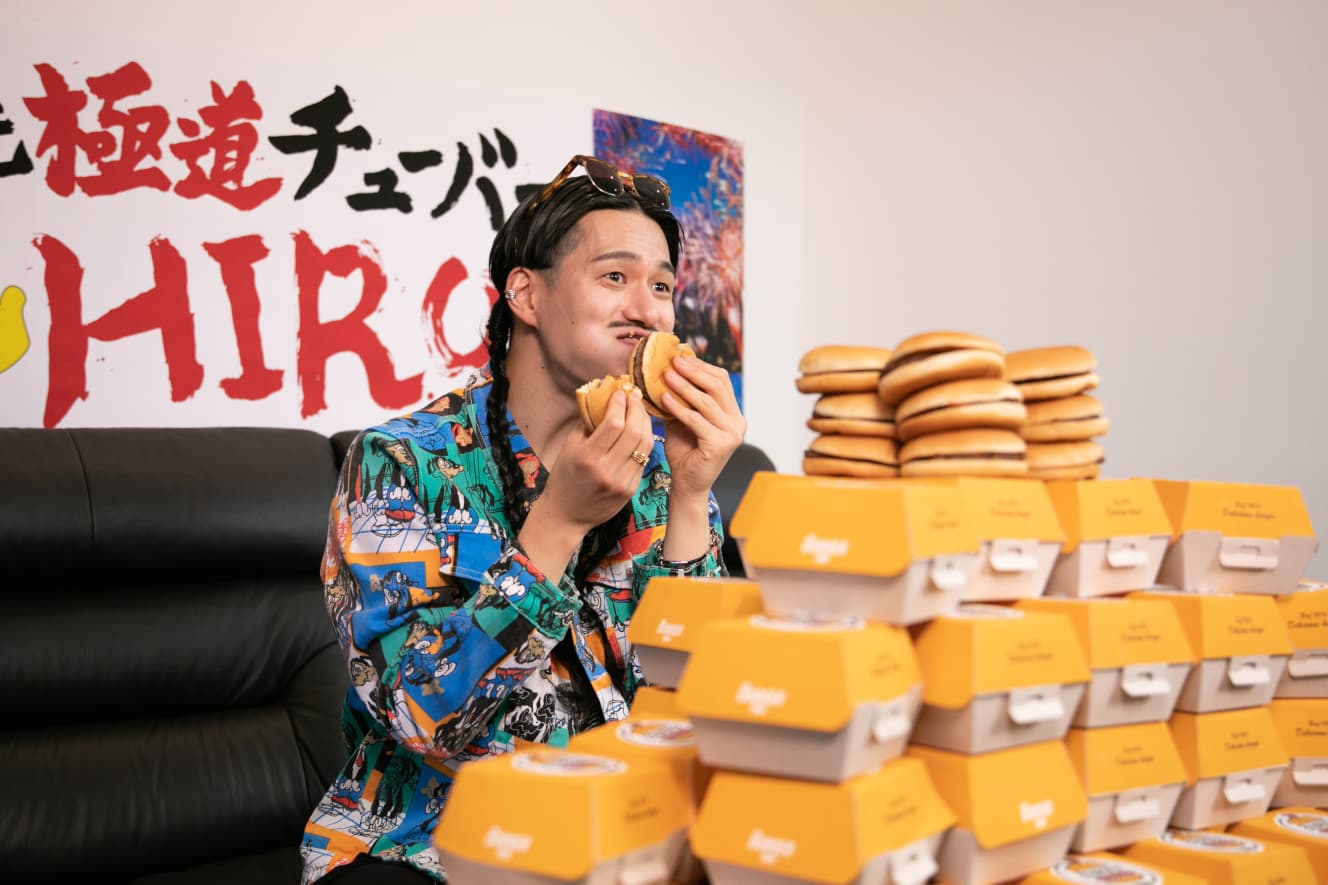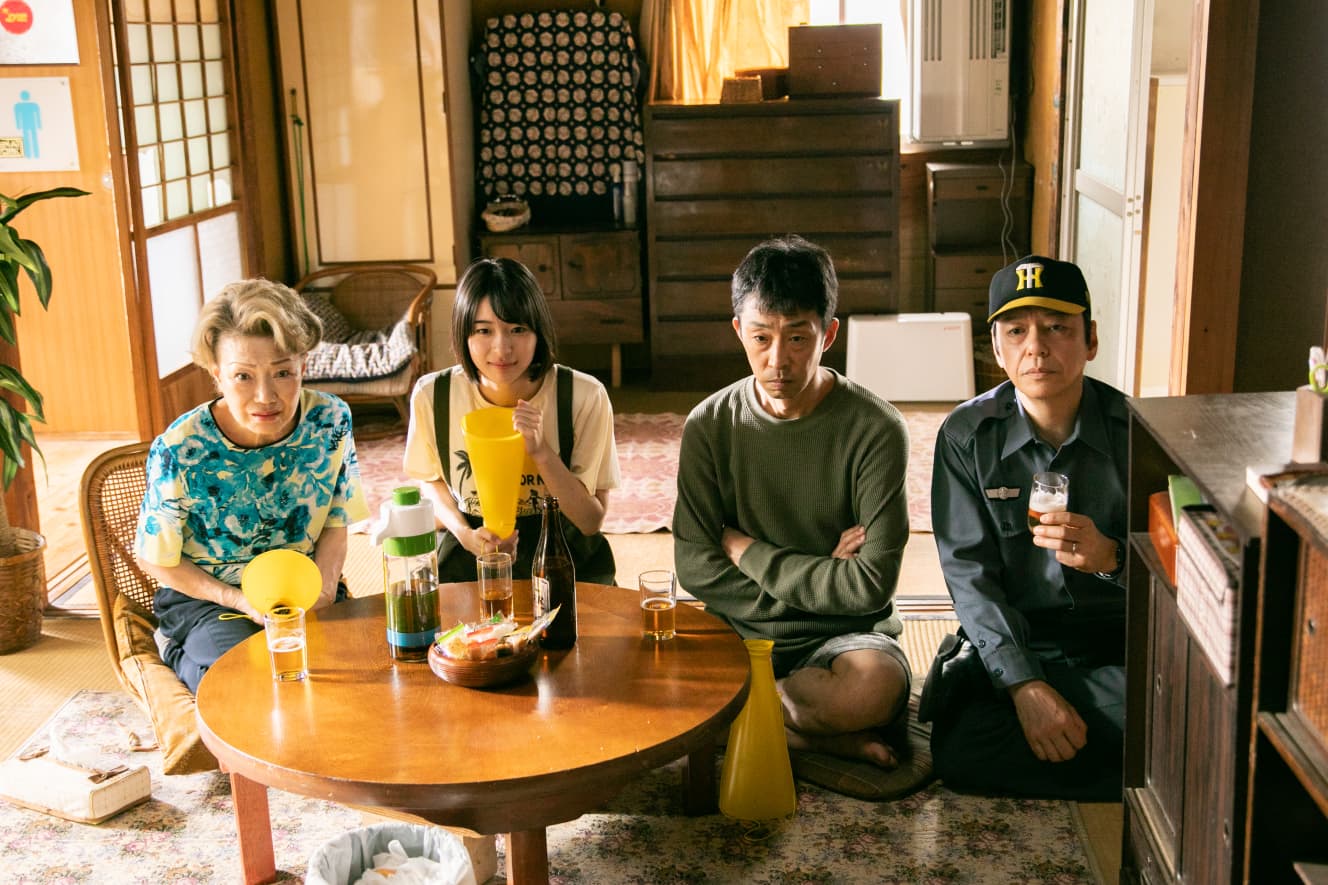The Producer of “mushoboke” Reveals “Amazing Production Secrets
The sorrow, reunion, and love of a man who was separated from Shaba for 14 years
“Plastic bags are charged at convenience stores! No smoking in pubs! And what’s a smart phone?
Sosuke Jinnai, played by actor Yukiya Kitamura, shouts these words. This is a phenomenon known as “jail-blindness,” in which people who have spent many years in prison and are closed off from society are unable to keep up with the rapid pace and changes in the world after their release. The drama “Mujiboke” is attracting attention as a former gang member who is in a state of “jail-blindness” struggles to cope with the confusion of being in Shaba, a place that has changed for the first time in 14 years.
Based on a novel of the same title by author Garyu Okita, the drama is also popular for its splendid cast, with Kitamura playing the main character, Jinnai, and Itsuji Itao playing the role of the “night shift chief,” the former prison guard in charge of the main character who appears as a phantom that only the main character can see after his release.
Just before the final episode, we asked “Mujiboke” chief producer Kota Yamazaki (ABC TV, “Yamazaki”) and producer Yudai Minami (ABC TV, “Minami”) to reveal the secret story behind the production.
— “How has the response been so far?
Yamazaki: “We’ve received a great response on social media. The first half was comedic, so many people said it was ‘funny. Before the show aired, I had a strong image of it as a yakuza drama, but it’s a comedy set in Kansai, so I think people are enjoying the gap between the two. In episode 8 (aired on November 28 in Kansai and November 30 in Kanto), Lisa (Reina Takeda), an important person who connects with the main character, suddenly committed suicide.
–Please tell us about the process of making the film.
Yamazaki: “The original idea started with Mr. Okita, who wrote the original story, and Mr. Michihito Fujii (Babel Label), who is credited as the plan producer. Mr. Fujii asked me if I would be interested in making a drama based on a work set in the Kansai region, and I was grateful for the opportunity because ABC TV does not have many opportunities to shoot a series of dramas in the Kansai region.
–Were there any hurdles to overcome in making the film?
Minami: “I think this drama is based on the reality of Mr. Okita’s actual experience. When I read the script, there were many things that surprised me. For example, raw food such as sashimi is not served in prison. Episodes such as ……, where the prisoners were confused about walking around at night after being released, could only come from real life experiences, and I felt that this would be an interesting drama.
However, since this is television, there are some things that need to be taken into consideration. For example, the staff discussed how the tattoo scene should be presented, considering the various effects. There is a scene in the first episode where the main character, Jinnai, is annoyed by the convenience store clerk and casually pulls up his clothes to show his tattoo. We added a subtitle that says, ‘Don’t do that if you’re a good boy,’ and it turned out to be a fun comedy scene.

–While there are many unique characters in the film, the night shift manager played by Itsuji Itao stands out especially. What did you consider when casting him?
Yamazaki: “I discussed the casting of this drama with Mr. Okita and Mr. Fujii. The head of the night shift, played by Mr. Itao, appears in as many scenes as the main character, and he is like an imaginary friend who symbolizes the inner life of the main character. The role is quite important and was one of the most difficult roles to cast. From the beginning, Itao-san’s name was mentioned as the only person who could play the night shift manager, and he gladly accepted the role, so it was decided at a very early stage.
–On the other hand, were there any roles that were difficult to cast?
Yamazaki: “HIRO (Joe Kujo of the comedy duo “Koutei”), I think. He’s a former gang member who was the main character’s younger brother, but now he’s active as a YouTuber. It’s a role that is hard to imagine and difficult to make convincing. Since Mr. Kotei won the ABC Comedy Grand Prix, we decided that Mr. Kujo would be a good choice.
–Since Mr. Kujo is playing the role, I don’t feel uncomfortable watching him, but when I think about it calmly, it’s quite a tricky role (laughs).
Yamazaki: “It’s a pretty important role, and I think it was difficult.

–Yamazaki: “You played the role well.
Yamazaki: “He played the role well. Kotei is very popular now, especially among the younger generation, and I think it was a good casting.
–Because it’s produced by ABC TV and set in Kansai, many of the cast members are familiar with the Kansai area. Ms. Kaoru Suenari, who played the role of the main character’s mother, is a familiar face in Yoshimoto Shinkigeki.
Yamazaki: “We shot the entire film in Kansai, including Amagasaki in Hyogo and Kishiwada in Osaka. One of the main goals of the project was to have a Kansai cast, speak in Kansai dialect, and film in Kansai, so having Ms. Suenari play the role of the mother was a big help. Minami used to work as a director of a variety show, so he knew Suenari-san well.
Minami: “Last year, Ms. Suenari changed her stage name from ‘Yumi Suenari’ to ‘Eikoru Suenari. When I asked her why, she said, ‘I want to be in movies and dramas. When I asked her why, she said, “I want to be in a movie or a drama. (laughs) She said she was really happy when she got the call to work on “Mujiboke.” People in Osaka seem to find it refreshing to see Ms. Suenari in a role they don’t usually see her in, and the response has been great.

–The entire film was shot in Kansai, right in front of Amagasaki Station. I imagine you must have had a lot of trouble getting permission to film there.
Minami: “With the cooperation of Mr. Okita and the local people, we were able to move forward with a lot of tolerance. When Mr. Fujii, the producer of the project, saw the finished product, he said, “Every part of the location is so austere that it could not be shot in Tokyo. I think the austere locations, such as the shuttered shopping streets and in front of the station, are one of the highlights of the drama. I think it will be fresh for viewers in Tokyo, and for those in Kansai, it will persuade them that it was really filmed in Kansai. And for people in the Kansai region, I think it has the power to persuade them that it was really filmed in Kansai. When I’m on location, people come up to me and ask, ‘Who are you? When we were filming on location, there were more people who came up to us and asked, ‘Who are you?’ than when we were filming in Tokyo, and we had to scramble to deal with them, but now it’s a fun memory.
–Where did you shoot the scenes on the train?
Minami: “With the cooperation of Nankai Electric Railway, we filmed back and forth along a short line with only about six stations. In Tokyo, it’s very difficult to shoot inside a train, so I think this was one of the scenes we were able to shoot because we were in Kansai.
–There was a scene where they found Koshien reflected in the train window and moved on to talk about their memories of Koshien, but it must have been difficult to coordinate the timing of the shooting.
Mr. Minami: “Actually, the Koshien you see in that scene is CG. You can’t see Koshien at all from the actual train. It’s the finishing team’s technical skill.
–Finally, what are the highlights of the final episode?
Mr. Minami: “Jinnai shot the leader of a rival organization and ended up in prison for 14 years. In the last episode, Jinnai decides to write a book about his experiences and describes the mystery of why he decided to shoot in the first place, which had been kept secret until then.
Also, what will happen to his relationship with his daughter, Natsuki (Yui Narumi), when he publishes the book? What will happen to the head of the night shift who was visible only to Jinnai? How will the severely jail-bound Jinnai find true happiness in Shaba? I hope you can witness the finale.
The final episode of “Mousho Boke” is scheduled to air on December 12 in Kansai and December 14 in Kanto.
Interview and writing: Keitaro Haga
